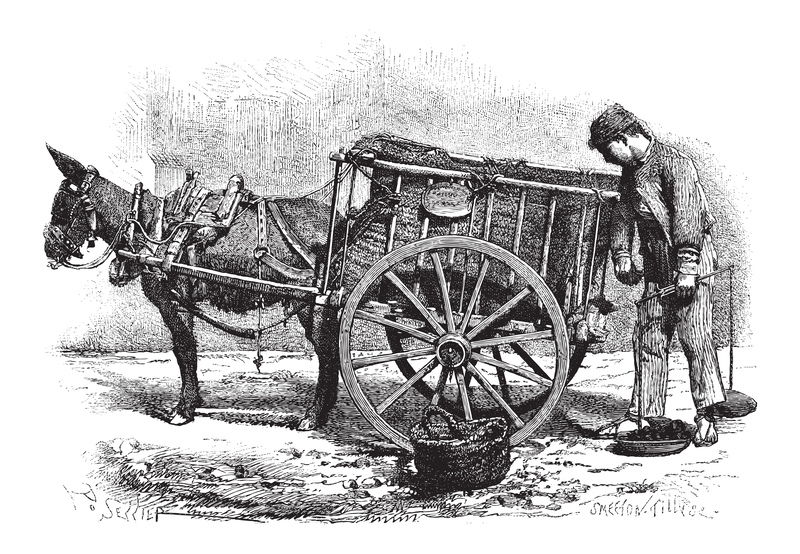The food service industry plays a crucial role in our lives, offering innumerable culinary experiences. However, with great service comes significant responsibility, especially regarding food waste. Tackling food waste is not only essential for environmental sustainability but also for enhancing business profitability. In this detailed exploration, we delve into innovative solutions eateries can adopt to minimize food waste effectively.
Understanding Food Waste in the Restaurant Industry
Every year, restaurants contribute heavily to food waste. Understanding why this occurs is the first step toward finding solutions. Key factors include:
- Overproduction: Preparing too much food often leads to excess that cannot be repurposed.
- Plate Waste: Customers not finishing their meals results in leftover food.
- Improper Storage: Food going bad before it's used due to inadequate storage practices.
- Inventory Management: Ordering errors and poor inventory management contribute significantly to food waste.

Innovative Solutions to Minimize Food Waste
With the challenges understood, let's explore innovative solutions that eateries can implement to curtail wastage.
Adopting Smart Inventory Management Systems
Investing in smart inventory management technology is a game-changer. These systems help track food quantity and shelf life, ensuring restaurants order the right amounts.
- Benefits: Reduces over-ordering and spoilage through real-time insights.
- Implementation: Platforms like BlueCart and MarketMan offer inventory solutions tailored for restaurants.
Portion Control and Customizable Menus
A considerable amount of restaurant waste comes from leftover meals. Offering customizable portions can drastically reduce this waste.
- Customer Engagement: Allows patrons to choose their desired portion sizes, enhancing satisfaction.
- Sustainability: Reduces the amount of food discarded per meal.
Efficient Food Storage and Preservation Techniques
Incorporating better storage techniques ensures food stays fresh longer. This includes:
- Vacuum Sealing: Extends shelf life by eliminating air exposure.
- Temperature Control: Ensures optimal conditions for perishable items.
Leveraging Technology for Waste Management
AI-Based Waste Tracking Systems
Artificial Intelligence (AI) empowers restaurants with predictive analytics. By analyzing data, eateries can predict waste patterns and adjust ordering and production accordingly.
- Waste Intelligence: Platforms like Winnow Vision use AI to track and reduce waste through image recognition.
Mobile Apps to Monitor and Reduce Waste
Utilizing apps specifically designed to manage restaurant waste helps streamline processes and provide actionable insights.
- App Examples: Apps such as Too Good To Go connect restaurants with customers willing to purchase surplus food at reduced prices.
The Role of Staff Training and Education
Staff play an integral part in minimizing waste. Educating them about sustainable practices and waste reduction techniques is vital.
Conducting Regular Training Sessions
- Objective: Educate staff on efficient food preparation, storage, and handling to minimize waste.
- Results: Improved awareness and more deliberate actions regarding waste management.
Incentivizing Waste Reduction
Motivating staff through incentives can lead to a conscientious approach to minimizing waste.
- Reward Systems: Implement bonuses or recognition for employees actively reducing waste.
Creative Ways to Repurpose Food Waste
Repurposing food scraps into new dishes or components is an innovative approach to minimizing waste.
Innovative Recipe Development
Encourage creativity in the kitchen by developing recipes that utilize scraps or leftovers.
- Example: Vegetable peels can be turned into stocks or crisps.
Partnerships with Local Farms and Composting Programs
Forming partnerships with local farms allows unused food to be composted, enriching the soil rather than contributing to landfills.
- Local Collaboration: Initiatives like the Food Recovery Network connect restaurants with farms for composting efforts.

Fostering Community Engagement
Donation Programs
Partner with food banks and charities to donate surplus food, ensuring it goes to those in need rather than trash.
- Case Study: Programs such as Feeding America facilitate connections between eateries and local food banks.
Participating in Local Waste Reduction Initiatives
Joining community initiatives to raise awareness and garner support amplifies the efforts to reduce food waste.
Concluding Thoughts
Embracing these innovative solutions not only enhances operational efficiency but aligns eateries with sustainable practices crucial for their future. As the world becomes increasingly conscious of its environmental footprint, eateries must capitalize on technology, community, and creativity to combat food waste. By doing so, they prove that being waste-wise is not just environmentally necessary, but distinctly advantageous for business as well.
Adopting these measures could indeed transform "waste not, want not" from a traditional adage to a new-age bonanza for modern eateries.